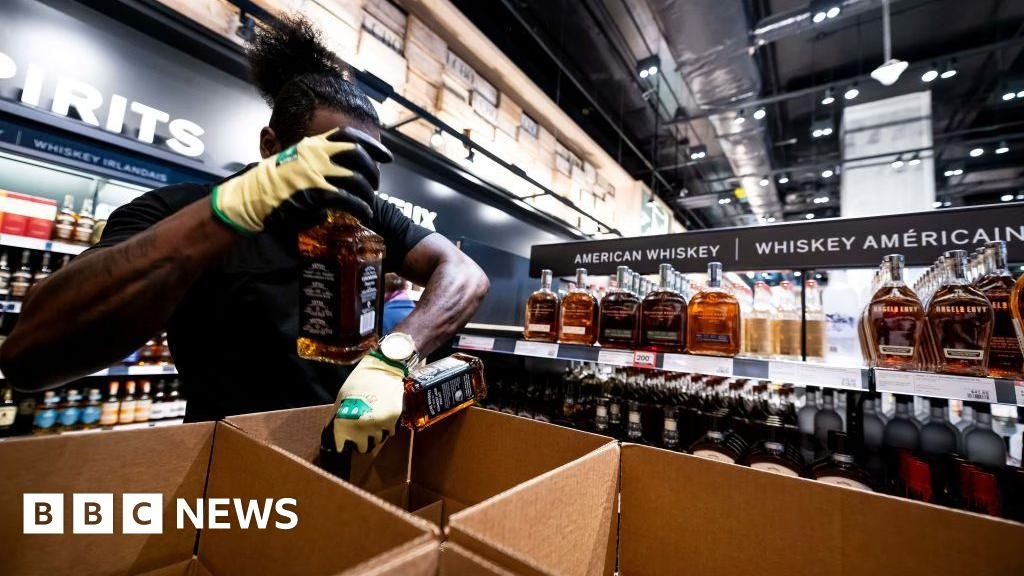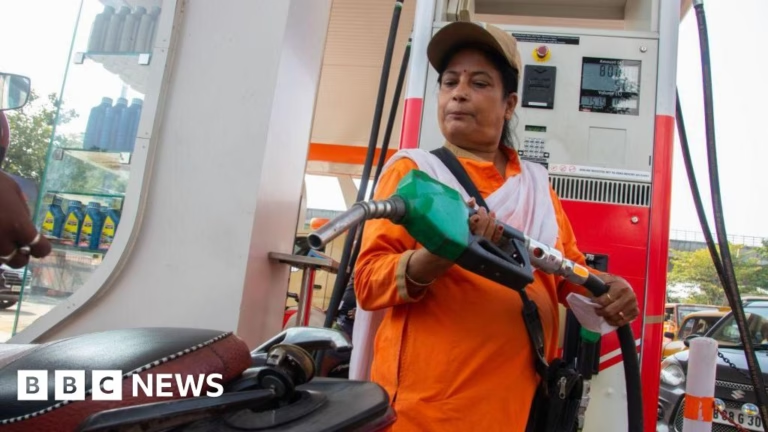The removal of American-made alcoholic beverages from store shelves in Canadian provinces, in response to the Trump administration’s trade policies, has been described as “worse than tariffs” by the CEO of Brown-Forman, the company behind Jack Daniel’s. This action comes as retaliation to the 25% tariffs imposed by the US on Canadian goods. Major provinces, including the heavily populated Ontario, have taken steps in response. Ontario’s Liquor Control Board (LCBO), which is one of the world’s largest purchasers of alcoholic beverages, pulled these drinks from its shelves on Tuesday. Brown-Forman’s CEO, Lawson Whiting, criticized the Canadian response as “disproportionate” to the imposed tariffs, highlighting the direct impact of removing their products from store shelves. In retaliation to the tariffs, Canada has applied 25% levies on imports from the US, including beer, spirits, and wine, with some provinces taking their own actions. Ontario Premier Doug Ford pointed out that the LCBO sells nearly a billion dollars’ worth of US alcohol annually, and as of now, all these products are off the shelves. The LCBO, being the exclusive wholesaler in Ontario, means other retailers, bars, and restaurants in the province can no longer restock US products. Despite this, Whiting stated that Canada only accounts for 1% of Brown-Forman’s total sales, indicating the company’s ability to withstand the impact. The LCBO is also urging Canadians to purchase products made in Canada, a trend already observed in response to the Trump tariffs. Prime Minister Justin Trudeau has expressed criticism of the US tariffs, labeling them as “a very dumb thing to do” and suggesting that Trump aims for “a total collapse of the Canadian economy” to facilitate potential annexation. Canada’s Foreign Minister Mélanie Joly has taken these suggestions seriously. Furthermore, Washington has applied 25% tariffs on Mexico, though Trump has proposed to temporarily exempt carmakers in both Canada and Mexico from these taxes. Brown-Forman is also closely monitoring developments in Mexico, which accounted for 7% of its sales in 2024.
Source: https://www.bbc.com/news/articles/cn0422zzpw8o








